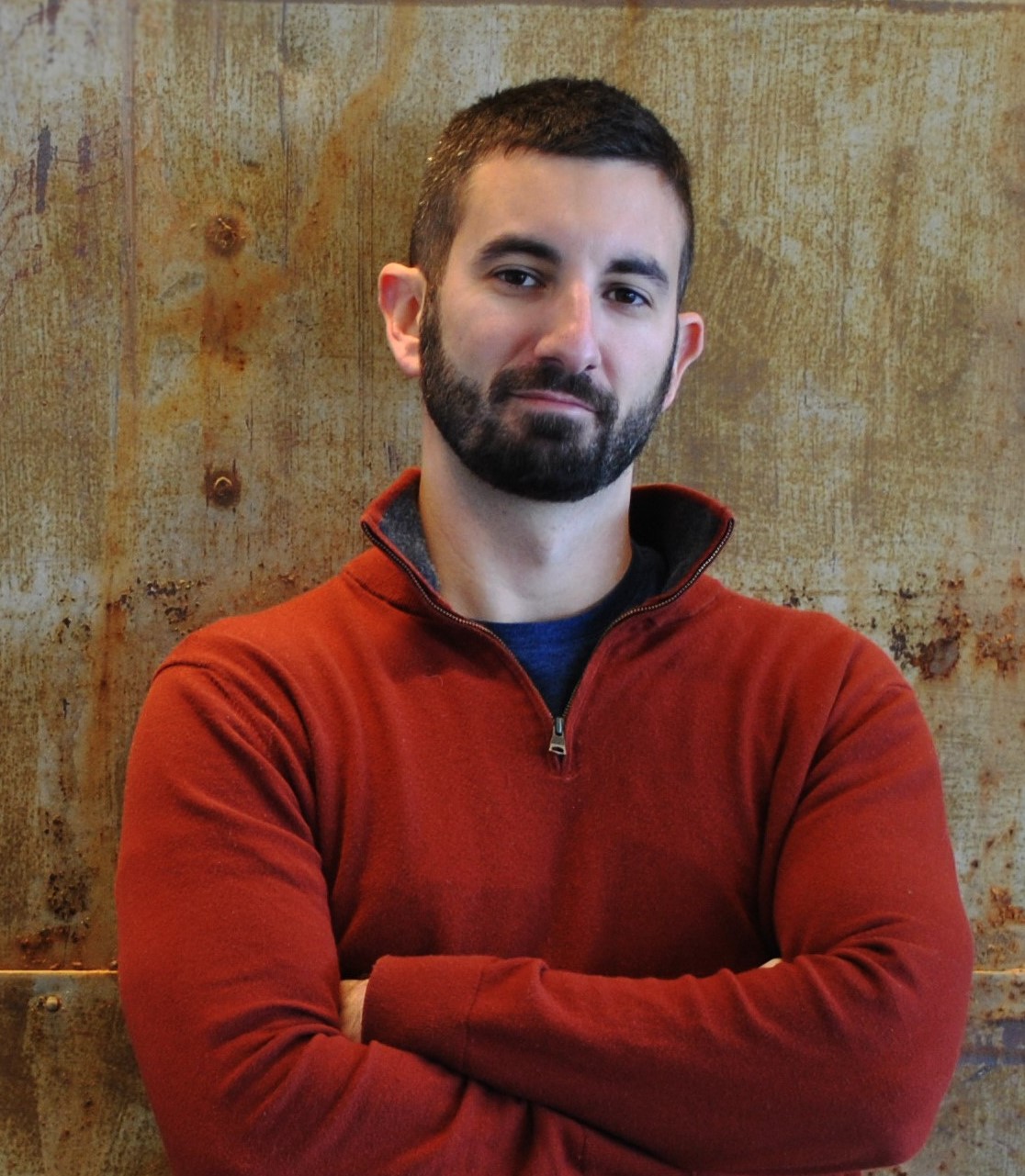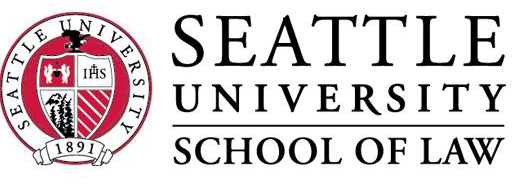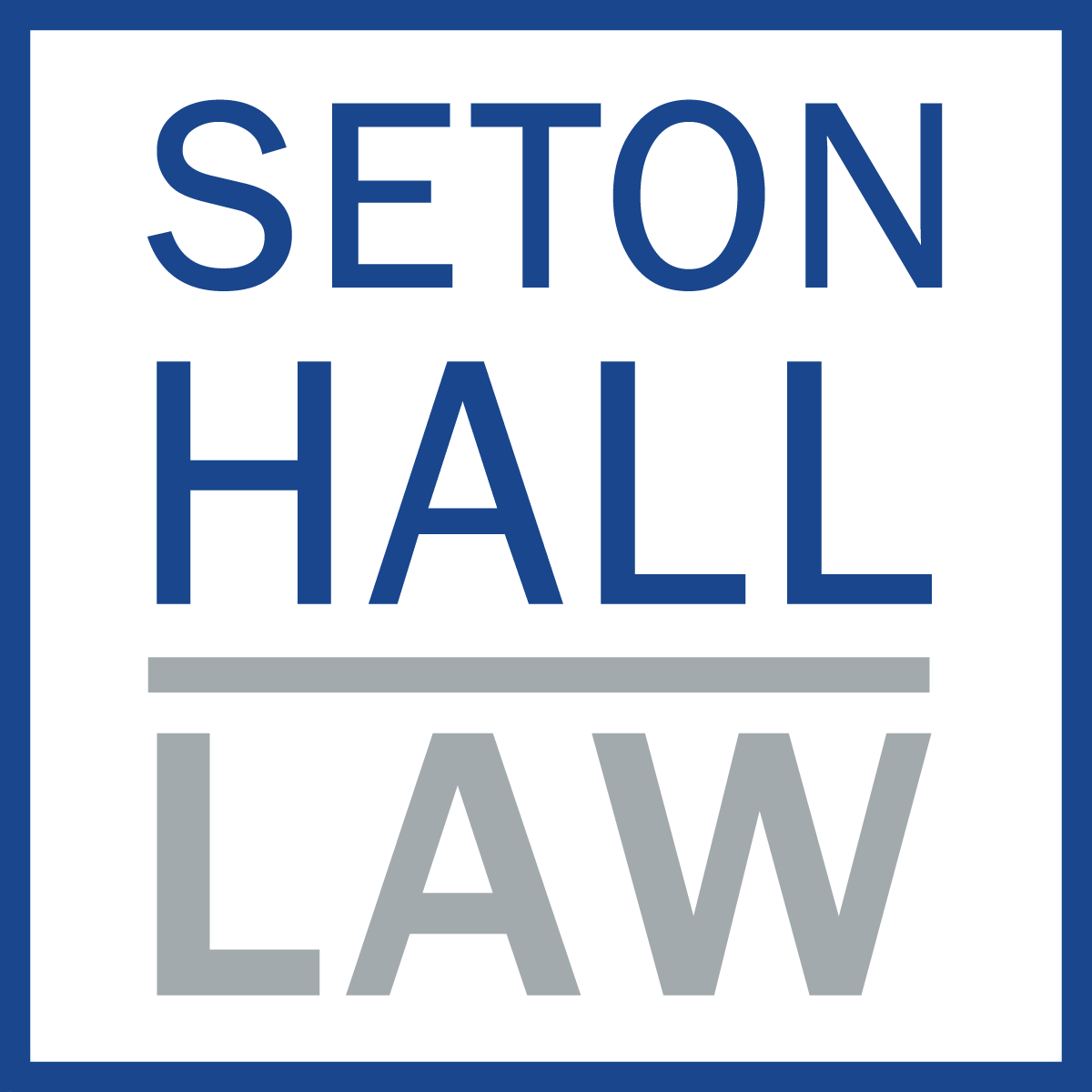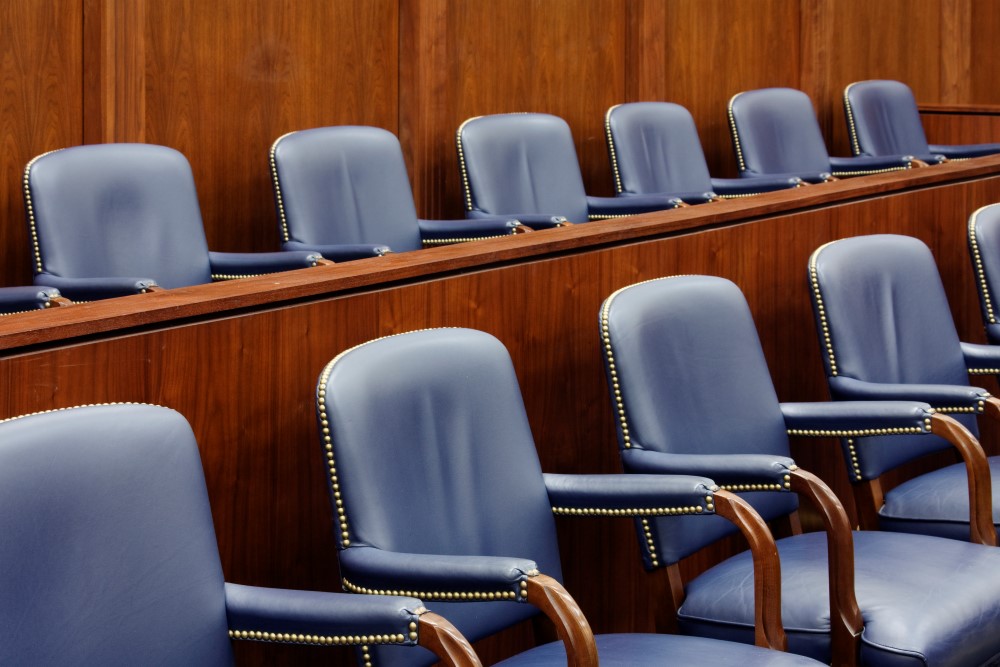Advocating for the Vulnerable: The Frontlines of Access to Justice
People need legal representation, regardless of financial means. Non-profits throughout the country, often called legal aid, play a crucial role in offering civil representation to individuals who lack the means to hire a lawyer. Hannah Wagner serves as a staff attorney at Legal Aid of Southeast and Central Ohio, where she addresses various legal needs within the community. Her practice spans education cases for students with special needs, restraining orders for individuals facing life-threatening situations, and child advocacy within domestic disputes as a guardian ad litem. This episode delves into the intricacies of providing legal support to children navigating challenging environments, highlighting the importance of creative advocacy. Hannah is a 2020 graduate of the University of Toledo College of Law.
Transcript
Kyle McEntee:
We're joined today by Hannah Wagner, staff attorney for the legal aid of Southeast and central Ohio, where she primarily focuses on education law and family law. Hannah is also a guardian ad litem.
Hannah, before we get into your education practice, tell me about how your family law practice is different than a standard family law practice given that many of your cases involve domestic violence. What sort of matters do you handle on behalf of these clients?
Hannah Wagner:
I do custody, divorces, civil protection orders, and then the guardian ad litem as well. And all of my cases regarding family law does have to include violence for it to get through our intake process because we are so short staffed. We can't take every low-income divorce that comes in, so we have kind of that qualifier that violence does need to be involved.
Kyle McEntee:
What is the definition of violence that you all use?
Hannah Wagner:
Basically, just any sort of self description. If someone calls in and says, my partner has been throwing things at the wall or has hit me or slapped me, usually verbal and emotional violence is involved. But if it's not accompanied by anything like threats of death or threats of suicide, then it might not be as considered as high level as other forms of abuse, unfortunately.
Kyle McEntee:
It's got to be difficult to say no in those cases.
Hannah Wagner:
It is incredibly difficult. I think that's probably the worst part of my job. I will go through an initial phone call with them and I explain I may not be able to take your case because we can't take every case. But at the very least, we always try to provide at least some sort of advice or next steps or something like that to at least help them and send them on their way. But it is hard to give that phone call and say, “hey, I'm sorry, I can't represent you.” And it usually comes with a lot of tears and it is rough for someone who, when I see other people cry, I start to cry. And so it's a difficult time. I think that's the worst part of this job.
Kyle McEntee:
So when you're trying to provide them some sort of advice, I'm imagining you're connecting them to some other local services. Are there other lawyers you can connect them to or is it mostly broader than that?
Hannah Wagner:
It's mostly broader than that. I'll try to kind of connect them to services that might be helpful like send them to JFS, Job and Family Services. But a lot of it is just like, hey, you told me about this text message. Here is how you use it as evidence in court if you're going to represent yourself. The attorneys in my area, not a lot of them do pro bono cases just because I'm in rural Ohio and there's not as many attorneys available.
Kyle McEntee:
So you also do some education law. What are the kind of issues you're encountering there?
Hannah Wagner:
I would say the majority of education law that I practice has to do with some sort of special education. So I help parents in IEP meetings, which are individualized education plans, or 504 meetings, which help students receive accommodations, even if they're not getting specialized education. But we also do a lot of discipline cases. So if someone is being suspended or expelled, something that's out of school discipline or a change in placement, we will usually go and represent a student either at their hearing or at their manifestation determination review to decide whether or not a disability was the cause of this behavior that they're being punished for. And if that's the case, then they cannot be expelled from school. So, incidences like that. We also do a little bit of bullying advocacy, where we'll help a parent or the student come up with a safety plan with the school that hopefully can deter any further bullying.
Kyle McEntee:
Who's the actual client here? Is it the parent? Is it the child? Is it both?
Hannah Wagner:
The child is ultimately the client. I always have to talk to them and ask them what they're wanting, what they're thinking with the understanding that I'm also talking to their parents. And so if they want to tell me something that they don't want their parents to know, I just let them know that that's fine. So that's really ultimately up to them whether they decide to share the information with me. Especially with IEP meetings and 504 meetings, a lot of times the students don't get involved because it can make them feel really horrible. Like they're hearing about all of these things that they're doing wrong, quote unquote, and all of these things that make life so difficult for the teachers that it's just, it's kind of traumatizing. So we try our best to prepare with the student, recognizing that they might not be in the room to speak for themselves.
Kyle McEntee:
So when you are having those conversations where you're telling the child, we have attorney client privilege, they're probably not used to someone being willing to talk to them who won't then turn around and talk to their parents. How do you assure them that, no, like, I'm not going to share your secrets?
Hannah Wagner:
Yeah, so a lot of it is just talking with them, kind of saying, “hey, I know that like your parent makes a lot of decisions in your lives, but here you are my client. What you say goes, I cannot go over that. Otherwise, I am in violation of my own job.” So trying to kind of reassure them that like, if I don't follow through with this, I'm gonna get in trouble sort of thing.
Kyle McEntee:
That's smart. So we talked about the limited resources of your legal aid and just legal aid in general. What are the factors that allow you to take a case in the education space?
Hannah Wagner:
At least for my office, we have a specific grant in Lincoln County through the Lincoln County Foundation that allows us to focus a lot more on education cases. So because education cases come in so rarely, I am able to take pretty much every education case. And I find that even if it's something that can be resolved with a phone call to the school, a lot of times the school will actually resolve the problem if the attorney is the one calling. So honestly, a lot of my education cases do not take me that long. It's like, hey, someone reached out, this is an issue. And they're like, oh, we didn't realize. And then they fix it, even though technically the parent has been calling them every month or something.
Kyle McEntee:
So they're just afraid of you.
Hannah Wagner:
Yes, exactly.
Kyle McEntee:
You mentioned that you're often in court for civil protection orders, custody disputes and divorce. Do you also go to court for those education issues ever?
Hannah Wagner:
I have not done that yet. It's a possibility, but usually education cases are through administrative hearings. So if there's an expulsion, that's an administrative hearing with the school board. If I want to appeal their decision, I go up to the state board. And then if I want to appeal that decision, then it will go into state or federal court, depending on what the issue is.
Kyle McEntee:
So I think people have a general understanding of what it looks like to be in court. What does it look like to be an administrative hearing?
Hannah Wagner:
Each school district is different and they kind of can have their own policies. A lot of it is actually very informal where we're just discussing here are the issues, here's his past or her past, here's why this diagnosis may relate to this issue. But we can also call in experts like the child's therapist that's not through school, stuff like that. So it's more of a conversation. Although once you get higher up in the process after you appeal, it gets more and more like a court hearing. So you're sitting around a table, but you're still having to wait your turn. You're still having to say objections, stuff like that. But usually the first prong of an education case is a very informal hearing.
Kyle McEntee:
Is there an attorney in the other side in those cases in that early stage?
Hannah Wagner:
Yes, usually. It's up to the district. I, for any IEP meeting or 504 meeting, the district's policy for all of the districts that I work with are to have their attorney present if the parent has an attorney present. So I always warn the parents that that's the case, like you're going to bring me in and this might be more adversarial than cooperative. If that's the way you want to go, that's perfectly fine. But just to kind of give them a heads up because, usually with IEP meetings, you want to cooperate. You want to find what is the best education for this child. Best is not the legal standard, unfortunately, but that's the goal.
Kyle McEntee:
So what is the legal standard? And is it statutory? Is it case law?
Hannah Wagner:
Under the IDEA, the Individuals with Disability Education Act, the standard is free and appropriate public education, or FAPE is what the generalized term is, which basically means education specialized to the student to allow them to progress. And that is the standard. It's not what is best, what is more beneficial to them. It is just what is the bare minimum to get them to progress from where they're at now?
Kyle McEntee:
And so what does that mean?
Hannah Wagner:
Great question. That again is just very jurisdictional. There's several circuit cases that will describe different things. There's not a whole lot of Supreme Court cases. There's a couple. But basically, if your student is receiving an IEP, they're setting goals. And so the goals have to be met by the end of a quarter. And so the school is supposed to provide progress reports throughout that. And if the student is not progressing, then the IEP meeting gets reconvened and they set different goals to ensure that the student is progressing in some way, shape, or form.
Kyle McEntee:
I guess I want to believe that every educator wants to see their students progress. And so if that's the minimum standard and yet you're still having to argue about it, that means that maybe they're not looking at it in the way I'm hoping.
Hannah Wagner:
Yes, I have a lot of bias against school districts. I would say teachers have it rough. Regardless if a teacher is super helpful to a parent, when they're in that scenario, in the meeting or in court or in a hearing, they're going to be protecting their job because then otherwise they can't help other students. So even if a parent is like, “oh, this teacher is going to be a great witness for us.” I always have to say like, yeah, maybe, but usually that's not my experience. They usually will be tampered down by the district, unfortunately.
Kyle McEntee:
And really it probably just comes down to resources, right? The reason there's lack of progress is there's not enough resources being provided to the teacher.
Hannah Wagner:
Exactly. Yep. And even when you're discussing with the school, like say the student needs a one-on-one aid, the school has the responsibility to provide it, but there are so few aids out there that it's hard. And so I get that aspect. But yeah, it's a weird balance of this is what the student needs and you have the obligation to provide it. I'm sorry that you don't have the resources to do so, but I'm here to make sure that this happens.
Kyle McEntee:
You mentioned that you also do some bullying cases. Can you talk to me a little bit about what that entails? Because it seems like in some sense, that's just something a teacher should resolve.
Hannah Wagner:
Yeah, I agree. That's not always the case. Actually a lot of the cases that come in regarding bullying are the teachers bullying the students, calling them specific names. So that is, yes, that is very problematic. But usually the way that I'm involved, I would say is…there's not a whole lot I can do with a bullying case other than have a meeting with the school and implement what's called a safety plan. So that safety plan can look like changing the student out of that classroom. It can look like having their friends walk them down the hall when they're usually yelled at by some other student, change seating arrangements, things like that to kind of ensure that whoever that bully is, they are staying away from that student.
A lot of parents will try to have meetings with the bullying student’s parents. That's generally not when I'm involved. And a lot of times I find that those parents don't want to go to those meetings and they're not required to do so. So really the only thing we can do is put on a piece of paper, “hey school, this is what you should be doing to address this.”
Kyle McEntee:
That's got to be very fact intensive as opposed to some legal standard you're applying.
Hannah Wagner:
Oh yeah, I think the way I would best describe it is creative advocacy. So you get a lot of opportunity to create your own solution, try and find the most creative way to handle this problem because a lot of it is not going to be relying on the law. It's going to be relying on the school policies and how best to assist the student in a way that the school is able to do so.
Kyle McEntee:
How did you learn to advocate so creatively?
Hannah Wagner:
When I was in law school, I had this professor, Shelly Cavalieri in Toledo. She taught property and I always thought property was going to be so boring. But she always taught it in a way that brought it back to social justice, which is something I'm very interested in and how I started at this job in the first place. And so, when she was teaching these, what would be normally considered dull topics, she would bring in social justice and how to creatively come around statutes that may not be very easy to get around. I would also say that my managing attorney, Bill Canterbury, he has been an enormous amount of help. I never considered myself a creative person. So when I got this job and I started doing advocacy I was like, “I just don't have any creative ideas for the solution.” And he was always great at kind of like bouncing ideas off me and encouraging me to look at different areas and see what other people are doing nationally. He's actually the reason I went to a conference in Atlanta recently. It was put on by the Council of Parent, Advocates, and Attorneys for special education cases and I learned so much from them which was really cool as well.
Kyle McEntee:
What are you seeing on the bullying front?
Hannah Wagner:
I would say that bullying, for one, it's kind of hard to tell just from my practice because a lot of students don't end up going to an attorney because they're getting bullied. But from what I've seen, the increases in bullying usually is tied around a hot topic. So right now there's a lot of anti-LGBTQ+ bills being introduced in Ohio and all over the U.S. So I have seen an increase in bullying against LGBTQ+ students.
Kyle McEntee:
That makes sense. So, even though you're relatively early in your career, you've already had the opportunity to start the guardian ad litem practice in your office. What kind of work do you do in that role?
Hannah Wagner:
A guardian ad litem or a GAL is someone appointed by the court, a third party to come into a custody case, whether it's divorce or just custody in itself, to investigate what's in the best interest of the child. That's the legal standard, the best interest of the child factors. And so I go in once the court thinks it's necessary. So again, if there's violence, if there's drug use in the home, that sort of scenario. And I will interview the child, I'll interview the parents, everybody who is in the household. I'll do home visits. I get an enormous amount of records, medical records, mental health records of the child, of the parents, any other party that might be in the home, criminal records. And I accumulate that investigation into a report for the court and I kind of lay out what my investigation was, what happened, and then I provide recommendations to the court based on that. And that's another kind of avenue that I can use creative advocacy, because not only can I say, “hey, I think it's in the best interest for mom to be the residential parent and dad to get supervised visitations,” but I can also say like, “hey, I think dad needs this co-parenting class” or “I think it would be helpful if dad enrolled in drug therapy.” Just come up with different ways to assist the parents to kind of get as much time with their child as they possibly can. Because I think that is helpful to the child.
Kyle McEntee:
This might be the wrong word to use, but I'm going to use it anyway. What is the discovery process like for uncovering information that's relevant to your determinations as to what your recommendations are?
Hannah Wagner:
So for me, it's pretty easy. The court just orders the parties to sign releases for themselves and for their children. And then I go and I interview them and say, “hey, what doctor do you see? What mental health counselor do you see?” It's very invasive to parents, but I think it is also very helpful because in the cases where I'm assigned, both parties are usually pro se. So they don't have an attorney. And so when they're presenting their cases, they don't know what the judge or the magistrate is looking for. I have to sit in for the final hearings and the parties go first. And I have seen them not even bring up the alleged sexual abuse that occurred to the child, which is like a big portion of my report. And so I'm able to give a better story to the judge or magistrate so that they can make a better determination for the child.
Kyle McEntee:
So you have to have a lot of really sensitive conversations. How did you learn to have those conversations successfully so that you can get the information you need without traumatizing the person you're talking to?
Hannah Wagner:
I've had a significant amount of training. The Ohio Supreme Court, which puts on specific GAL trainings and we are required to go through. I think it's 12 hours before you even start doing GAL work and then you have a continued six hour of continued education to stay at GAL. Those series have been very helpful, especially with interviewing a child and knowing where they're at in their state of development is incredibly helpful to how I will gear my interview tactics.
Kyle McEntee:
So you don't necessarily need to be an attorney to be a GAL, but are there benefits?
Hannah Wagner:
Yes, I would say there are. Non-attorney GALs can't write motions. So I do a lot of drug testing motions continuously throughout the case so that we can see like, hey, at the beginning, mom tested positive for meth. Hopefully by the end, she's not doing that so that we can hopefully see a progression of the parent trying to work on seeing their child. I also can call my own witnesses at the final hearing. So if I think someone's very relevant to the case that neither parties have called, I can call that person as a witness. So basically, I can do pretty much anything a normal attorney would be able to do, but a non-GAL or non-attorney GAL cannot do those things and they'd have to hire their own attorney for the case to do that.
Kyle McEntee:
Are you paid by the court in Ohio?
Hannah Wagner:
No. So the reason this program at our organization is so new is because GALs get paid by the parties, at least in the domestic relations court. In the juvenile court, I think the court may provide funds. I only work in the domestic relations court, but usually the parties pay and the court orders like a down payment. Even if neither party is the one who wanted the GAL in the first place and the court said you're getting one regardless, the parties still have to pay. So for me, since I work at a nonprofit, I get paid for my time regardless. So as long as I'm doing my job through my organization, I'm going to get paid. So this is an opportunity for us to have a no-cost GAL for low-income folks because people who cannot afford a GAL are just kind of out of luck and there are some pretty severe penalties for not paying GAL fees, which include contempt of court, which can come with jail time. We think it's really important that people have access to free GALs. And so that’s why we started the program.
Kyle McEntee:
So you have a lot on your plate right now. How quickly did you build this caseload when you started at Legal Aid?
Hannah Wagner:
It was a very slow progress when I started. So I would go around and watch the other attorneys in my office. I would be co-counsel for them, sit second chair, and kind of see how every attorney in my office does a case because everybody practices differently. So it's cool too that I was able to kind of see a bunch of different styles before I was thrown into court. I would say my first case I got was probably two weeks after I started. And then it was slowly adding onto that until I was at a normal caseload. And I don't think I was at a normal caseload until maybe two or three months into practicing.
Kyle McEntee:
When you were first starting to get cases doled out to you, were you able to choose your focus or was it just whatever comes in the door?
Hannah Wagner:
My managing attorney wants us to practice a little bit of all the different cases before we kind of start choosing what we like. The way we describe it is we're generalists, so we have like a college major. Starting out, I'd get consumer cases, public benefits, and then I found that I really enjoyed family law. We had just one education attorney in our office and she was incredibly knowledgeable. But then she was leaving, she was moving away. So they were like, oh, who's going to do our education cases? And I was like, that sounds very interesting to me. My stepmom's a Montessori teacher for three to six year olds. Like I've always been ingrained in the education world. And so she took me under her wing and taught me the ropes of the education realm and then I've continued on going to conferences, going to different trainings to build on those skills.
Kyle McEntee:
So your organization covers a lot of different counties. Are there a lot of other attorneys like you around doing the same work within the organization?
Hannah Wagner:
We cover 36 counties, my office specifically just does four of them. But even though I'm the only education attorney in my office right now, we have what's considered substantive teams. So we have an education team where all the people from different offices and from our Columbus office. We'll meet together and we'll discuss kind of some issues that we're seeing. When I first started out, I was like, here are all of my cases. I have no idea what to do next. And they would help me along and show me where to look if I needed to figure out what kind of statute was implicated or things like that. And so it's been a really helpful dynamic. There's also the statewide task force. So it's all the legal aids in Ohio, we have specific task forces. So we have a housing task force and we have an education task force. And so I'm part of that as well. And so if someone in my organization cannot help me out for next steps or where to look, someone in the state usually is able to help.
Kyle McEntee:
So I'm imagining that there's a family law team, there's an education law team. Are there also GAL teams?
Hannah Wagner:
There's not. We have a little group of people where we want to do a study to show why no-cost GALs are important so that we can get more state funding for no-cost GALs, whether that's through our organization or to provide for private attorneys. Either way, it would be great just so that we can have that as a point of access. So I am the first GAL in our organization and we're trying to have someone from every office be a GAL. And so I think once that kind of starts, we probably will have our own sort of team of some sort.
Kyle McEntee:
And it sounds like it'll be your team, right? Since you're the first one.
Hannah Wagner:
Yeah, yep, I think so.
Kyle McEntee:
I think that's an exciting leadership opportunity, right? Tell me about why that excites you.
Hannah Wagner:
I really love helping people. So I enjoy being someone who takes the new attorney in the office to court or being co-counsel on a new attorney's case because I just love inserting myself in that position. I enjoy seeing these other people learn and develop and that's really cool. So I am very excited for, once we get more GALs, yo be able to kind of share like, here is my first report I wrote versus here's my most recent. These are the things that I learned throughout that process. And so I'm excited to kind of impart my knowledge on them. Even though I feel like I'm so new to the profession anyways that it's an odd opportunity I would say, but I'm very excited about it.
Kyle McEntee:
So you didn't realize you wanted to go to law school until late in your undergraduate career, but you say that legal aid was your dream job. How did those pieces fall into place?
Hannah Wagner:
I have always been very social justice focused. And I originally went to undergrad thinking I was going to go into the FBI and catch bad guys and all of that fun stuff. But then as I progressed throughout college, I minored in women, gender and sexuality studies. And I realized a lot of what I am passionate about, I might have more impact if I was a lawyer rather than an FBI agent. And so when I took a sociology of law class my senior year of undergrad, I realized like, this is it, this is the piece that I needed. I think I can have a lot more impact on the world if I am an attorney.

 Kyle McEntee
Kyle McEntee






